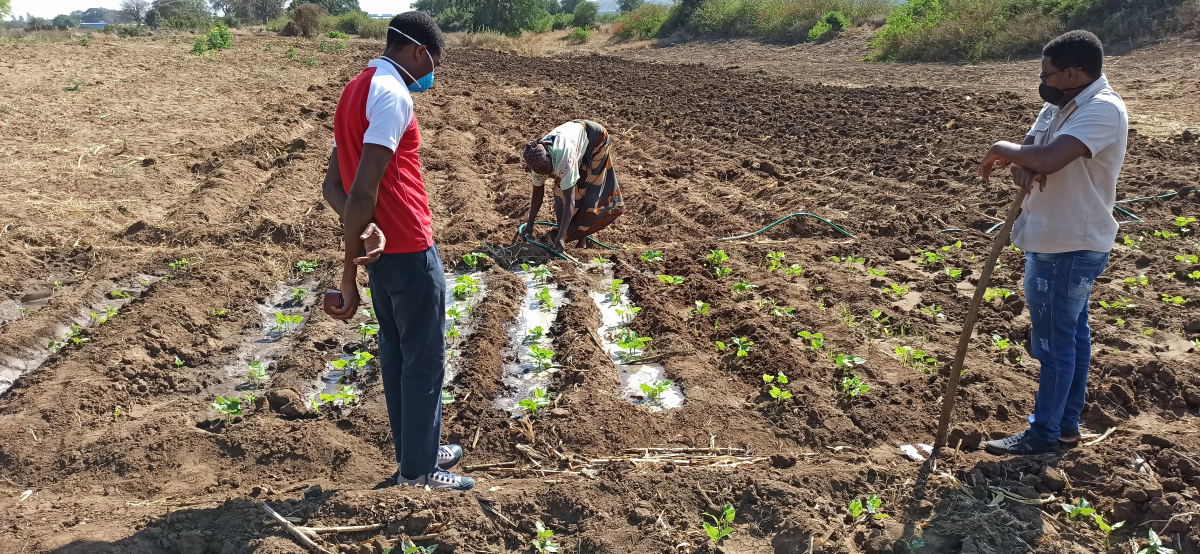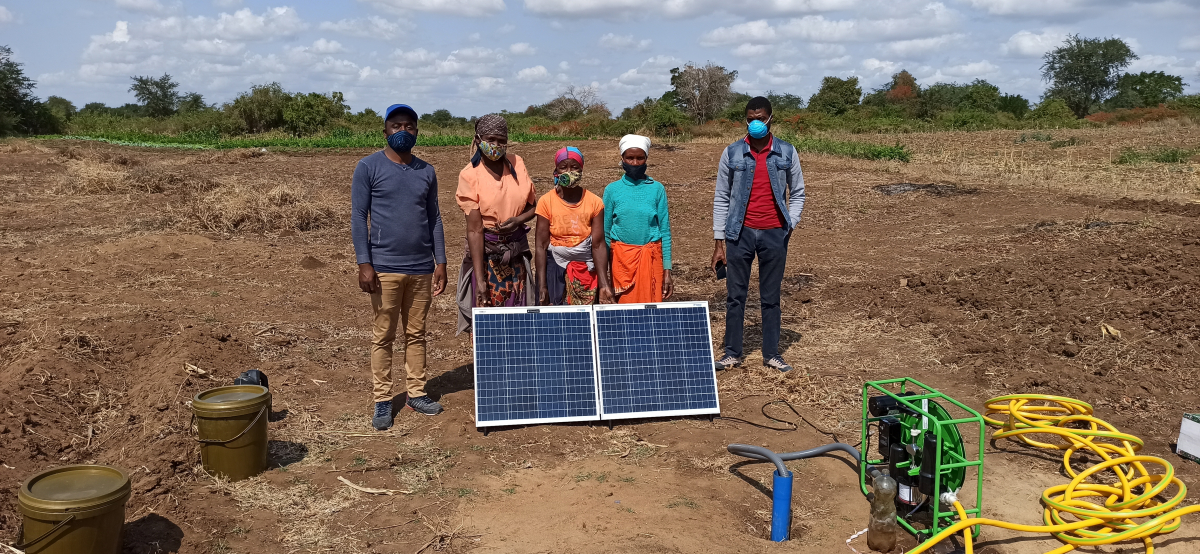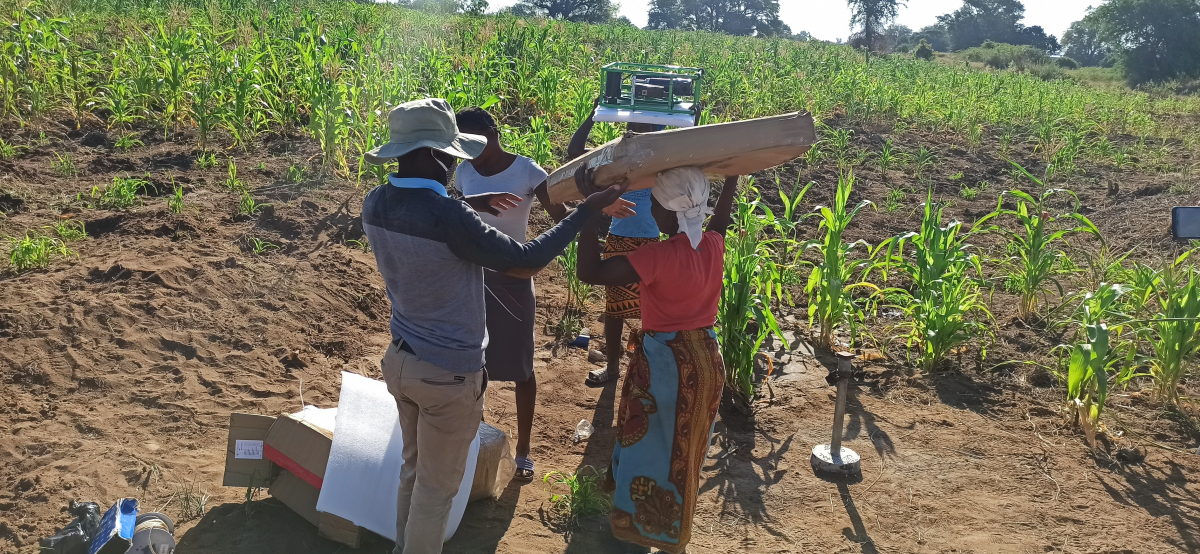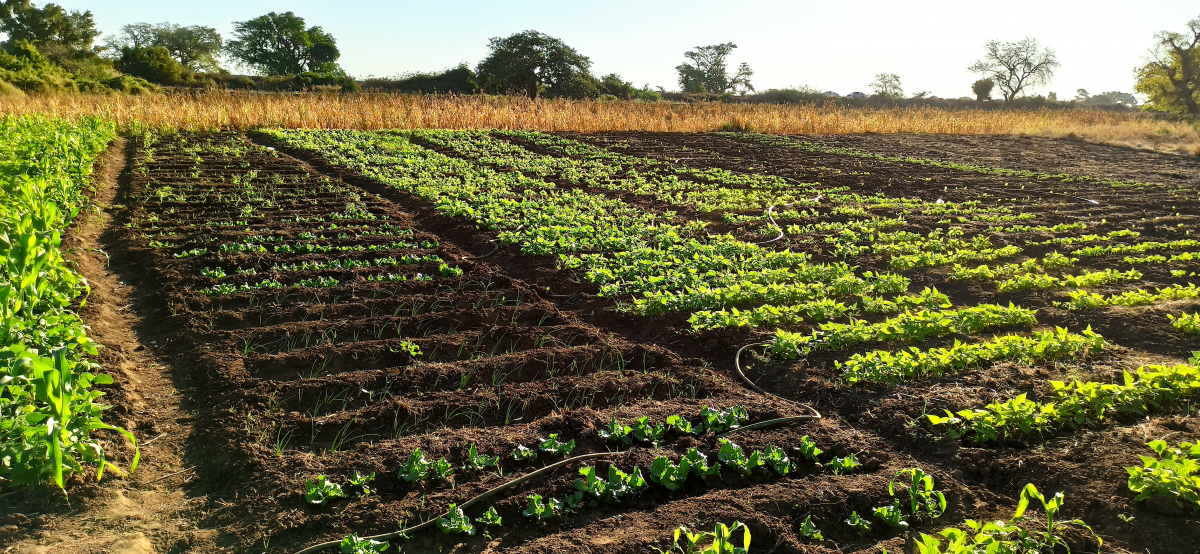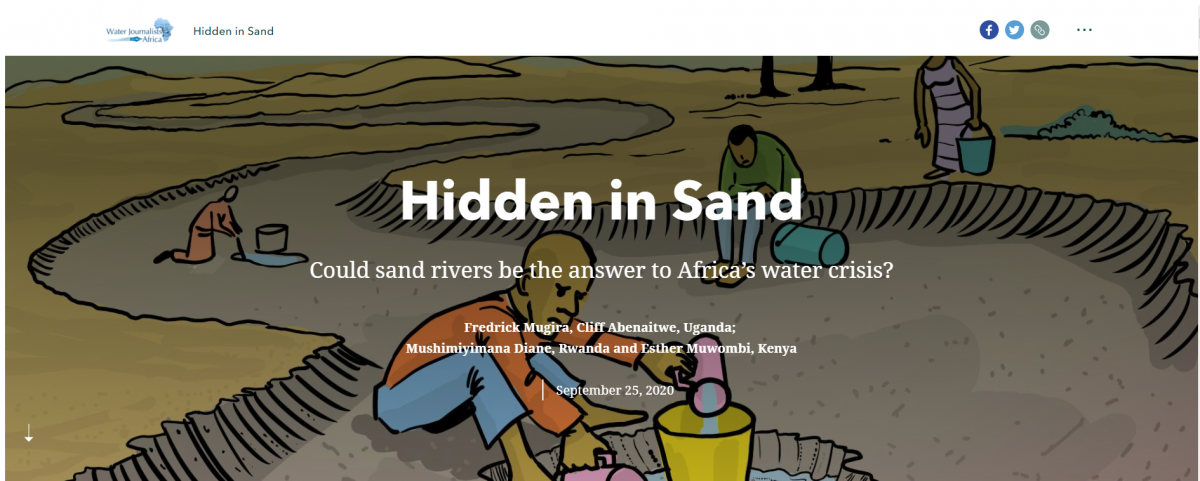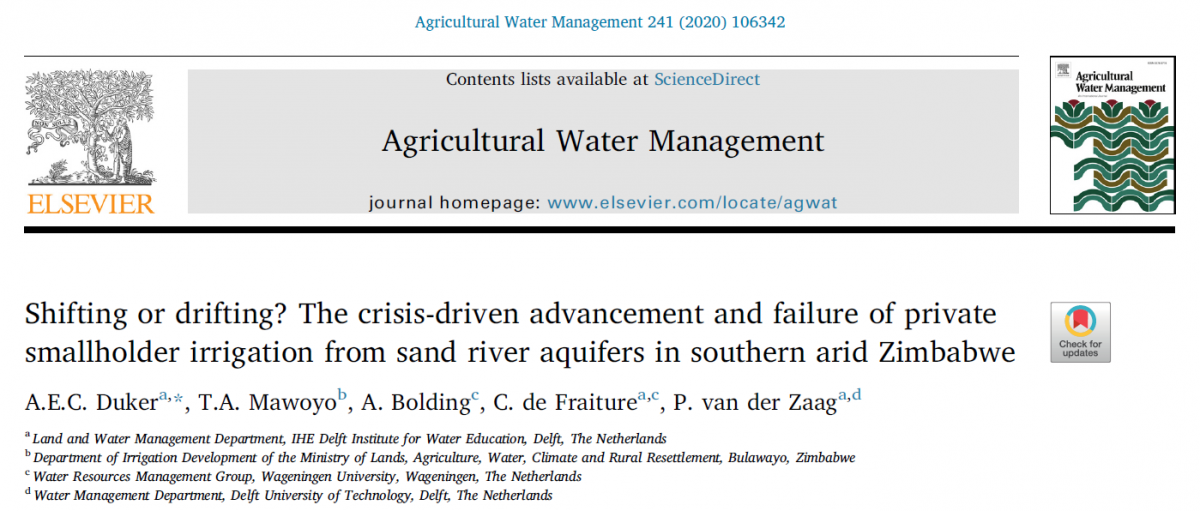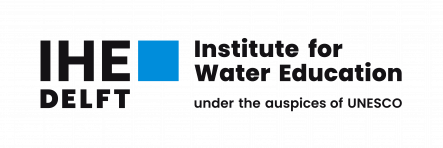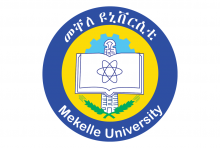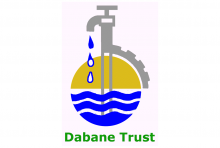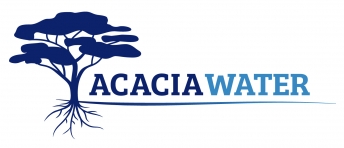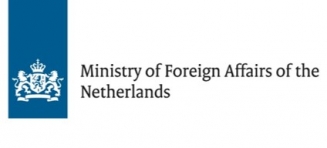Arid African Alluvial Aquifers - A4Labs
What do we do?
Click the picture below to watch our short video with our farmers testing the new abstraction and irrigation methods in Zimbabwe and Mozambique! Or go to: https://www.youtube.com/watch?v=6-jooLBWqXI
PROJECT UPDATES
January 2022 - Three new open access publications in peer-reviewed journals are out! Read more about:
(Saveca et al., 2022)
July 2021 - Quest Magazine published an article about sand rivers in Sub-Saharan Africa! A4Labs colleagues Annelieke Duker and Pieter van der Zaag were interviewed on the opportunities of sand rivers for irrigation development. It is based on their experiences, successes and challenges in their action-research together with smallholder irrigators and project partners. The original article can be read
here (in Dutch), and the English translation
here.
January 2021 - Mozambican BSc student Nadia Chambal was awarded with two prizes by the National Research Fund for her work within the A4Labs project: 'best young researcher' and 'best presentation'. Congratulations to Nadia and her supervisor Paulo Saveca from the Instituto Superior Politécnico de Gaza for this excellent achievement!
October 2020 - The importance of action research with smallholder farmers is once more stressed: Researchers highlight in Nature that "science must stop neglecting smallholders" in the search for solutions to stop hunger. It concludes that although 475 out 570 million farms are smaller than 2 ha, less than 5% of the assessed studies is relevant to those smallholders. It continues by stating that "most of the included studies only involved researchers without any participation from the farmers. These findings lead to the conclusion "...that most research on hunger is of little practical use in the goal to make hunger a thing of the past". Read more on: https://www.nature.com/articles/d41586-020-02849-6
October 2020 - The movies of our inspiring special session "Farmer voices from sand rivers" during the 21st WaterNet symposium on October 30 are online! They can be found here:
The full recording of the special session, including the lively discussion and announcement of the WhatsApp Video Challenge, can be viewed here.
October 2020 - Join our unique special session "Farmer voices from sand rivers" during the 21st WaterNet symposium on October 30, 10-12 am SAST. We will show videos from farmers' experiences in our action research programmes. Regististration is for free! Click on the flyer for more detailed information on the programme and registration.
September 2020 - Could sand rivers be the answer to Africa's water crisis? Read the
latest work 'Hidden in Sand' by 4 journalists from Uganda, Rwanda and Kenya about sand river practices in these different countries.
September 2020 - Despite the logistical challenges during the pandemic, our work with individual farmers in Mozambique continues. Donia Ania has started farming her field with the Sunflower pump, accessing water from the sand river (Limpopo).
August 2020 - New blog online on
IHE website on how private smallholder irrigators are (not) coping with droughts, economic crisis and increasing food insecurity in southern Zimbabwe. By Annelieke Duker.
July 2020 - Amidst the COVID-19 crisis, our colleagues in Chokwè Mozambique manage to keep the project running. They continue monitoring the farms and even managed to install a new wellpoint and solar pump with a farmer. She can now start irrigating her crops on her field along the Limpopo. Given the restrictions and necessary precautions that were taken, it is encouraging to experience the strong will and dedication of all involved!
July 2020 - New publication out! Read
our work on private smallholder irrigators along the Shashe and Thuli rivers in southern Zimbabwe. It shows the extent, operations, drivers, challenges and coping mechanisms of faming families making use of sand river aquifers in these drylands. It is open access so feel free to share!
February 2020 - Our most
recent paper on our progress, findings and future ambitions in Mozambqie and Zimbabwe is out now! Published (open access) in Environmental Science and Policy.
January 2020 - 13 households in Ethiopia have installed solar pumps to access water for irrigation. They are now actively testing the pro's and con's of this technology.
July 2019 - New results published by Evelien Rietdijk et al.! Read all about their work on adaptive development pathways, a novel planning approach for vulnerable communities facing an uncertain future.
June 2019 - Within the Arid African Alluvial Aquifers - A4Labs project, IHE Delft signed an MoU with the Department of Irrigation Development in Harare. They will, among other things, undertake action research to map the potential water storage of sand rivers in Zimbabwe for irrigation development.
2018 - Out now! Latest findings of water productivity and hydrological research along sand river aquifers in Tekeze, Ethiopia:
Villani, L. Castelli, G., Hagos, E.Y., & Bresci, E. (2018). Water productivity analysis of sand dams irrigation farming in northern Ethiopia. Journal of Agriculture and Environment for International Development, 112(1), 139-160. https://doi.org/10.12895/jaeid.20181.726
Gebremicael, T. G., Mohamed, Y. A., v. Zaag, P., and Hagos, E. Y. (2017). Temporal and spatial changes of rainfall and streamflow in the Upper Tekezē–Atbara river basin, Ethiopia, Hydrol. Earth Syst. Sci., 21, 2127-2142, https://doi.org/10.5194/hess-21-2127-2017.
October 2017 - A special session on alluvial aquifers during the 2017 WaterNet conference in Namibia was well attended! Sharing best practices and strengthening the emerging community of practice for enhancing rural livelihoods in arid Africa.

May 2017 - A4Lab Mozambique partners - among them local authorities of Quijá District, the NGOs Oxfam Mozambique, ADCR and Kulima, the Institute Superior Politécnica de Gaza - together with Tibor Stigter and Pieter van der Zaag of IHE Delft were supported by staff and the flying sensors of ThirdEye based in Xai Xai when making a first assessment of water availability in the dry river beds of the Limpopo near Chókwè. Many children enjoyed the distraction on this sunny Sunday afternoon. Many thanks Milton and Nadja den Besten!



